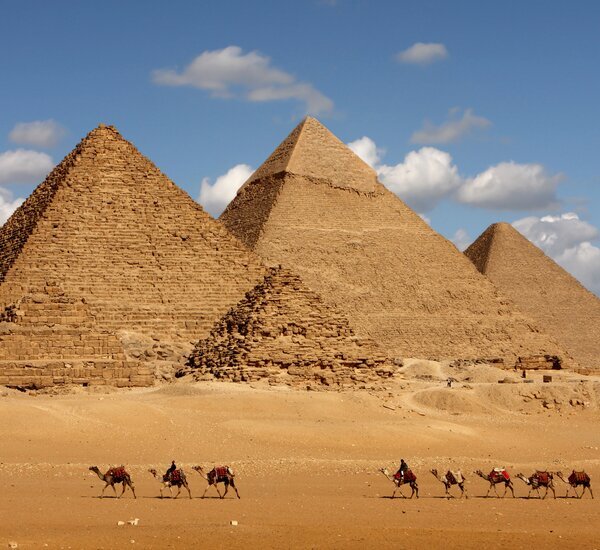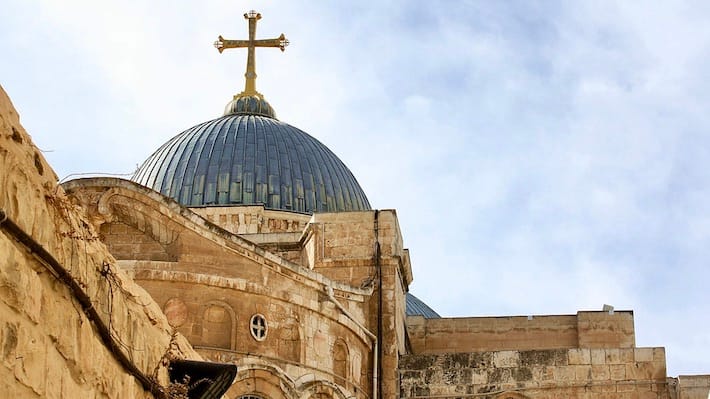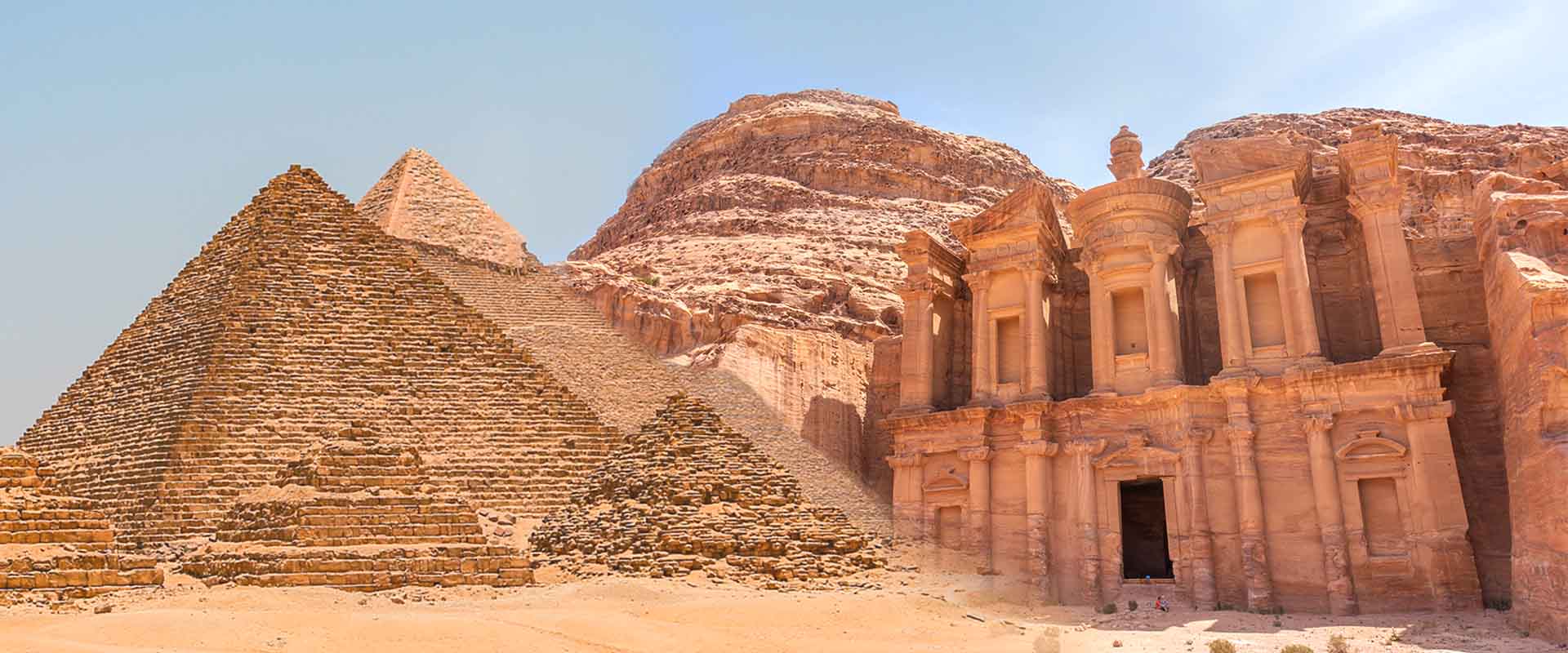Ultimate Middle East Itinerary: How Australians Can Explore Egypt, Jordan, and Israel in One Trip

Introduction
Overview of the Ultimate Middle East Itinerary
The Middle East offers a unique blend of ancient history, breathtaking landscapes, and vibrant cultures, making it an extraordinary destination for travellers seeking adventure. An itinerary that encompasses Egypt, Jordan, and Israel allows one to experience some of the world's most iconic sites. From the Great Pyramids of Giza to the lost city of Petra and the historic streets of Jerusalem, each country presents its own charm and attractions worthy of exploration. This thoughtfully crafted itinerary ensures that you witness the highlights while immersing yourself in each nation's rich heritage.
Benefits of Exploring Egypt, Jordan, and Israel in One Trip
Combining Egypt, Jordan, and Israel into one journey provides numerous benefits, including:
- Cultural Immersion: Engage with diverse cultures and traditions that have shaped the region for millennia.
- Historical Understanding: Visit significant archaeological sites and learn about the ancient civilizations that thrived in these lands.
- Time Efficiency: Reducing travel time between countries allows for a more in-depth exploration of each destination.
- Geographical Proximity: These countries share borders, making it convenient for travel and allowing for seamless transitions from one experience to the next.
By embracing this ultimate Middle East itinerary, travellers unlock the potential for unforgettable memories, picturesque views, and a profound appreciation for this historically rich region.

Planning the Trip
Researching Visa Requirements
Before embarking on your Middle Eastern adventure, it’s essential to investigate the visa requirements for each country you plan to visit. Visa regulations can vary significantly depending on your nationality, and doing your homework ensures smooth entry into each destination. For instance:
- Egypt: Many visitors can obtain an e-visa online, while others may require a visa upon arrival.
- Jordan: A visa is typically required; however, travellers can apply for a Jordan Pass, which grants entry to various sites and waives the visa fee.
- Israel: Most tourists don’t need a visa for stays under 90 days but should check the latest travel advisories.
Choosing the Best Time to Visit
Timing is crucial when planning a trip to the Middle East, as the climate can be quite diverse. The best times to visit are generally during the cooler months, from October to April. During this period, the weather is pleasant, making it ideal for sightseeing. However, consider visiting during:
- Spring: Experience blooming flowers and temperate weather, perfect for outdoor activities.
- Autumn: Witness the beautiful fall colours while avoiding the summer heat.
Selecting Accommodations
Finding the right accommodation can significantly enhance your trip. Options range from luxurious hotels to charming guesthouses or traditional hostels. When selecting a place to stay, consider:
- Location: Proximity to major attractions can save time and energy.
- Facilities: Amenities like Wi-Fi, breakfast, and shuttle services can make your stay more enjoyable.
- Reviews: Check multiple platforms for genuine reviews to make an informed decision.
By paying close attention to these planning details, travellers can ensure a more enjoyable and enriching experience in the Middle East.
Exploring Egypt
Discovering the Pyramids of Giza
A trip to Egypt would be incomplete without marvelling at the magnificent Pyramids of Giza. These iconic structures stand as a testament to the ingenuity of ancient Egyptian civilisation. Visitors can:
- Explore the Great Pyramid: Step inside this remarkable structure, which has fascinated historians and tourists alike for centuries.
- Visit the Sphinx: This half-lion, half-human statue offers a perfect photo opportunity while embodying the mysteries of ancient Egypt.
- Enjoy a Sunset Tour: Witnessing the pyramids against a sunset backdrop creates an unforgettable experience, perfect for photographers.
Exploring Luxor and the Valley of the Kings
Next, heading south to Luxor is essential for those keen on history. Often referred to as the ‘world’s greatest open-air museum,’ Luxor boasts a wealth of treasures. Not to miss:
- Karnak Temple: A sprawling site filled with impressive columns and beautiful hieroglyphics.
- Valley of the Kings: The burial site of numerous pharaohs, including Tutankhamun. Explore the tombs adorned with intricate wall paintings that narrate tales of the afterlife.
Cruising the Nile River
Finally, a river cruise on the Nile offers a unique perspective of Egypt’s landscape. Relax on a traditional felucca or enjoy a luxury cruise while taking in:
- Scenic Views: Witness life along the riverbanks, from lush fields to ancient ruins.
- Cultural Experiences: Engage with local markets and experience authentic Egyptian cuisine during stops at charming riverside towns.
Exploring Egypt offers a rich tapestry of history and culture, leaving visitors with an appreciation of its timeless allure.
Immersing in Jordan
Visiting Petra, the Ancient Rose City
Transitioning from the historical wonders of Egypt, a journey into Jordan unveils the breathtaking beauty of Petra, known as the ancient Rose City. Carved directly into vibrant red rock, Petra is one of the New Seven Wonders of the World. As you wander through the Siq, a narrow gorge leading to the Treasury, the anticipation builds, making the first glimpse awe-inspiring. Must-see highlights include:
- The Treasury (Al-Khazneh): Admire its stunning façade, which has captured the imaginations of countless visitors.
- The Monastery (Ad-Deir): A steep climb rewards you with panoramic views and a magnificent structure larger than the Treasury.
Exploring Wadi Rum Desert
Next, a visit to Wadi Rum, famously known for its Martian-like landscapes, offers an exhilarating experience. The vast desert expanse features dramatic sandstone mountains and unique rock formations. Engagement opportunities include:
- Camel Trekking: Explore this breathtaking landscape at a leisurely pace, soaking in the stunning vistas.
- Jeep Tours: Fast-paced adventures abound as you traverse the desert in a 4x4, stopping to view rock inscriptions and natural arches.
Experiencing the Dead Sea
No trip to Jordan would be complete without a visit to the Dead Sea, known for being the world’s lowest point. Here, one can:
- Float Effortlessly: Thanks to its high salinity, the experience of floating in the Dead Sea is both unique and memorable.
- Enjoy Mud Treatments: Indulge in mineral-rich mud treatments renowned for their therapeutic properties.
Immersing in Jordan provides a rich, enchanting journey filled with wonders that are sure to leave a lasting impression.
Unveiling Israel
Touring Jerusalem, the Holy City
Continuing the adventure, Israel’s rich history and spirituality come alive in Jerusalem, often revered as the Holy City. A tour here is like stepping into biblical narratives, with every corner steeped in significance. Key sites to explore include:
- The Western Wall: This sacred site invites reflection and connection, with visitors often leaving prayers written on slips of paper tucked into the cracks.
- Church of the Holy Sepulchre: A profound location believed to be the site of Jesus' crucifixion and resurrection, showcasing stunning religious art.
Visiting Tel Aviv, the Cultural Hub
After immersing in the history of Jerusalem, a visit to Tel Aviv reveals a contrasting and vibrant cultural landscape. Known for its modernity and dynamism, Tel Aviv is a city where tradition meets contemporary flair. Highlights include:
- Carmel Market: A bustling market that offers a feast for the senses, where locals sell fresh produce, spices, and street food.
- Tel Aviv's Beaches: Perfect for relaxation and people-watching, these stretches of golden sand invite you to unwind and soak up the sun.
Exploring the Masada Fortress
Lastly, a trip to Israel wouldn’t be complete without visiting the iconic Masada Fortress. Perched atop a plateau, Masada holds immense historical significance as a symbol of Jewish resilience. Visitors can:
- Hike the Snake Path: A rewarding trek up the mountain, leading to breathtaking views of the surrounding desert.
- Discover Ancient Ruins: Explore remnants of Herod the Great's palace complexes and the storied history surrounding the Jewish revolt against Rome.
Unveiling Israel showcases an extraordinary blend of history, culture, and resilience, enriching every traveller's experience in this remarkable region.

Cultural Experiences
Sampling Middle Eastern Cuisine
As the journey through the Middle East unfolds, one of the most delightful aspects to explore is the diverse and flavourful cuisine. Each country offers a unique taste experience, with dishes that reflect the region’s history and cultural influences. When sampling Middle Eastern cuisine, must-try foods include:
- Hummus: A creamy dip made from chickpeas, often enjoyed with fresh pita bread.
- Shawarma: Succulent, marinated meat thinly sliced and wrapped in flatbread, accompanied by tangy sauces and fresh vegetables.
- Knafeh: A popular dessert made with shredded pastry soaked in syrup and layered with cheese, providing a sweet end to the meal.
Engaging with Local Traditions and Customs
Beyond the food, immersing oneself in the local traditions and customs is vital to understanding the culture. Each country showcases vibrant practices, such as:
- Traditional Music and Dance: Enjoy performances of folk music and dance, providing insight into the cultural fabric of the region.
- Festivals: Participate in local celebrations, where visitors can witness colourful parades, unique rituals, and community spirit.
Understanding the Historical Significance of the Region
To fully appreciate the Middle East, understanding its historical significance is paramount. Known as the cradle of civilization, this region has shaped human history in profound ways. Engaging with this legacy involves:
- Visiting Museums: Discover ancient artefacts and exhibits that narrate the stories of past empires.
- Guided Tours: Opt for tours that highlight important historical sites, providing deeper context and insights.
Cultural experiences in the Middle East enrich the journey, offering unique flavours, traditional practices, and a compelling historical narrative that leaves a lasting impact.
Practical Tips for Australians
Health and Safety Precautions
When travelling in the Middle East, health and safety should always be a priority. Australians should ensure they are well informed about health risks and take necessary precautions. Key considerations include:
- Vaccinations: Consult a healthcare provider to discuss recommended vaccinations for each country, such as Hepatitis A and Typhoid.
- Travel Insurance: Obtain comprehensive travel insurance that covers medical expenses, as healthcare facilities may vary in quality.
- Local Laws and Customs: Be aware of local laws and cultural norms to avoid unintentional offences—dressing modestly, particularly for women, is advisable.
Currency Exchange and Budgeting
Navigating currency exchange and budgeting can significantly enhance your journey. Here are some essential tips for managing finances while abroad:
- Currency Awareness: Familiarise yourself with the currency of each country—Egyptian Pounds, Jordanian Dinars, and Israeli Shekels are commonly used.
- Exchange Options: Opt for local currency exchange services or ATMs, typically offering better rates than exchanges at airports.
- Budgeting: Allocate a daily budget for meals, transport, and activities. This helps avoid overspending and allows for adjustments as needed.
Communication and Language Considerations
Language can be a barrier, but understanding the local dialects and customs fosters a smoother experience. Tips for effective communication include:
- Basic Phrases: Learn a few key phrases in Arabic, such as "Shukran" (thank you) and "Marhaba" (hello), to engage with locals warmly.
- Translation Apps: Consider downloading translation apps to assist in communication, especially in more rural areas where English may not be widely spoken.
By prioritising health and safety, effectively managing finances, and bridging language gaps, Australian travellers can ensure a rewarding and enriching experience in the Middle East.
Sustainability and Responsible Tourism
Promoting Eco-Friendly Practices
As awareness of environmental issues grows, so does the importance of incorporating eco-friendly practices into travel plans. Sustainable tourism not only preserves the natural beauty of the Middle East but also enhances the travel experience. Consider these practices while travelling:
- Use Public Transport: Opt for buses or trains over taxis when possible, reducing your carbon footprint while experiencing local life.
- Choose Eco-Friendly Accommodations: Research and select hotels that prioritise sustainability, using renewable energy or promoting recycling initiatives.
- Participate in Eco-Tours: Engage with tour operators that focus on conservation, wildlife protection, and environmental education.
Respecting Local Communities and Environments
Travellers should also be mindful of local communities and environments. This respect enriches the cultural exchange and fosters goodwill. Some tips include:
- Learn About Cultural Norms: Familiarise yourself with local customs and beliefs to show respect, particularly in more conservative areas.
- Support Local Crafts: Purchase handmade items and produce from local artisans, which supports the community economically and preserves traditional skills.
- Leave No Trace: Practise responsible behaviour by avoiding litter and minimizing waste, preserving the natural landscape for future visitors.
Supporting Ethical Tourism Initiatives
Finally, consider supporting ethical tourism initiatives that promote responsible travel. Research local organisations that focus on:
- Community Development: Seek out tours that invest profits back into local projects, enhancing community welfare and infrastructure.
- Wildlife Conservation: Engage with operators that prioritise the protection of endangered species and natural habitats.
By promoting eco-friendly practices, respecting local cultures, and supporting ethical initiatives, travellers can create meaningful and responsible experiences while contributing positively to the places they visit.
Conclusion
Reflecting on the Journey
As the exploration of the Middle East comes to a close, it’s essential to reflect on the myriad experiences encountered throughout this vibrant region. Each destination, from the majestic pyramids of Egypt to the ancient streets of Jerusalem, tells a compelling story that resonates deeply with its visitors. Travellers are often left with lasting memories, such as:
- The warmth of local hospitality: Engaging with communities can lead to delightful connections, offering a genuine glimpse into everyday life.
- The serenity of natural landscapes: Whether it’s floating in the Dead Sea or witnessing the stunning sunsets in Wadi Rum, these moments create cherished memories.
- A newfound appreciation for history and culture: Learning about the rich tapestry of traditions and historical significance enhances the understanding of global heritage.
Encouraging Others to Explore the Middle East
Encouraging fellow travellers to venture into the Middle East is an invitation to experience a world of wonder. When considering a future trip, keep in mind:
- Diversity of Experiences: The region offers something for everyone, from adventure seekers to history buffs and culinary enthusiasts.
- Unique Cultural Exchanges: Engaging with locals provides enriching perspectives that enhance one’s worldview.
Ultimately, the Middle East stands as a testament to resilience, diversity, and beauty. By sharing these experiences, others are often inspired to embark on their own journey, discovering the enchantment that awaits in this remarkable region.
